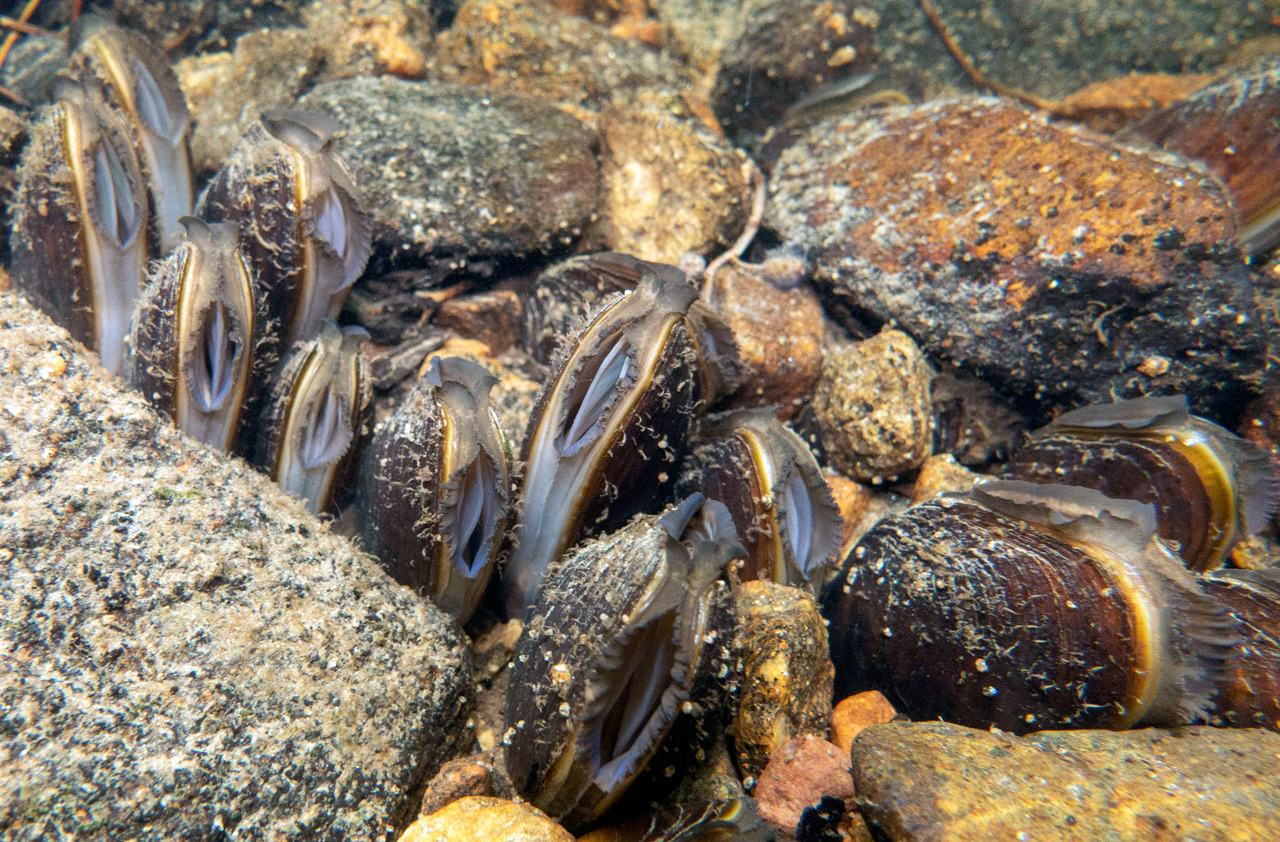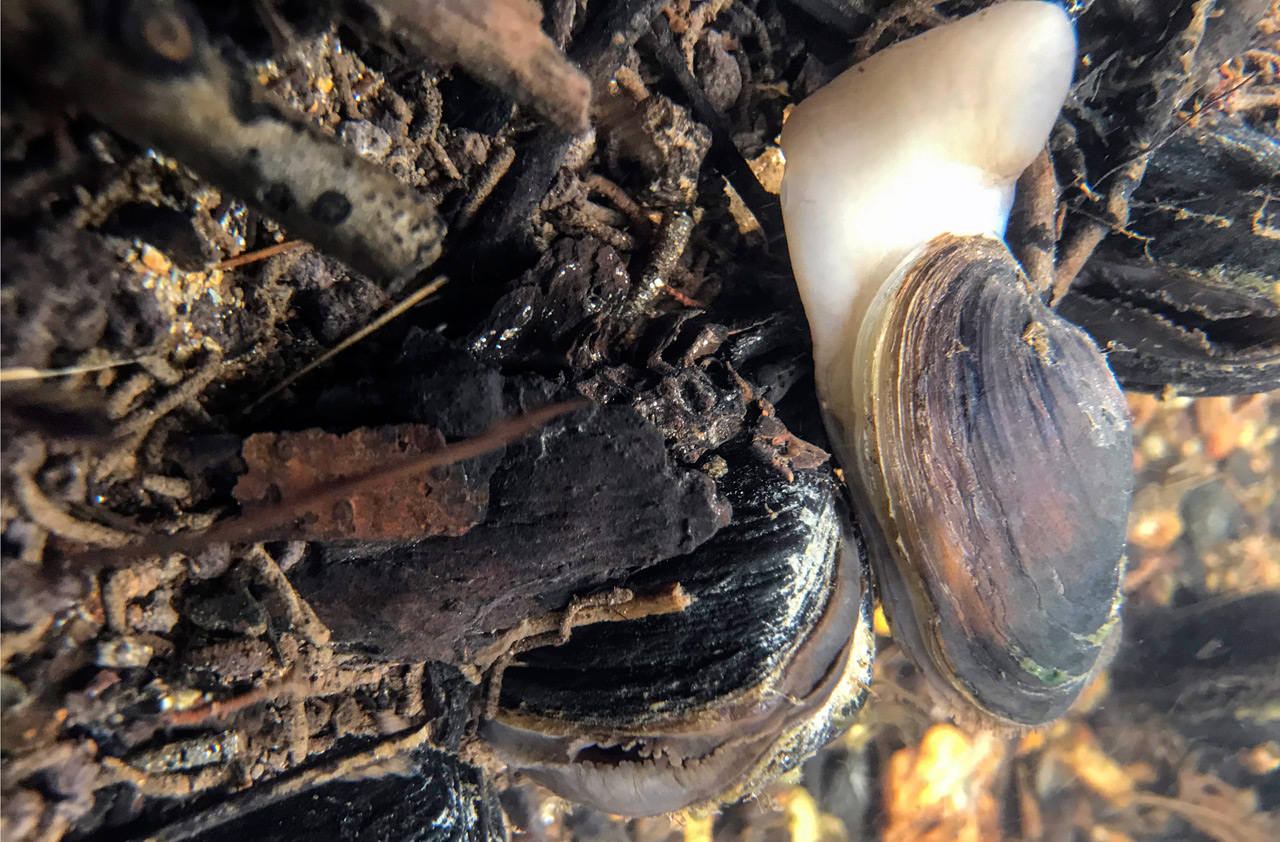Welcome to the MARA (Margaritifera Restoration Alliance) Joint Project
A national project for the conservation of the freshwater pearl mussel and its habitats
The freshwater pearl mussel (Margaritifera margaritifera) is threatened with extinction across Germany (German Red List Centre, Stöckl et al. 2020). The aim of the MARA Project, funded in the "Bundesprogramm Biologische Vielfalt", is to reverse the decades-long negative trend that has affected freshwater pearl mussel stocks. The joint project, which is funded by the German Federal Agency for Nature Conservation with the resources of the German Federal Ministry for the Environment, Nature Conservation, Nuclear Safety and Consumer Protection, will implement a conservation programme for the freshwater pearl mussel across Germany.
In addition to this national networking of local conservation efforts, the project will also combine a package of short- and long-term measures. A breeding programme will be implemented in order to stabilise freshwater pearl mussel stocks and preserve their genetic diversity. This programme will be accompanied by a range of additional investigations, constant genetic testing and a methodical optimisation. To improve the habitat, in addition to making structural upgrades to the bodies of water, efforts must be made to increase water storage in the surrounding area. This will increase the resilience of the water systems to climate change and improve the food supply for the freshwater pearl mussel, while also minimising sediment, nutrient and pollutant inputs.
An integrative approach will be pursued in a number of different ways here:
1. In collaboration with local land users, example measures for sediment and water retention, and their environmental effectiveness, will be tested. The effects on operational activities and yields will be identified in order to create best-practice examples for a large-scale application.
2. Ecosystem services and regional value-added chains will be supported, e.g. with decentralised flood, water and soil protection.
3. The needs of associated species, in particular the common nase (Chondrostoma nasus) and the huchen (Hucho hucho), must be taken into account with the implementation of the measures and included in the action plan. Both species of fish are, like the freshwater pearl mussel, responsibility species. These are species that Germany as a country is particularly responsible for preserving, either because they can only be found in Germany, because a significant proportion of the global population can be found in Germany or because the species is globally endangered.



